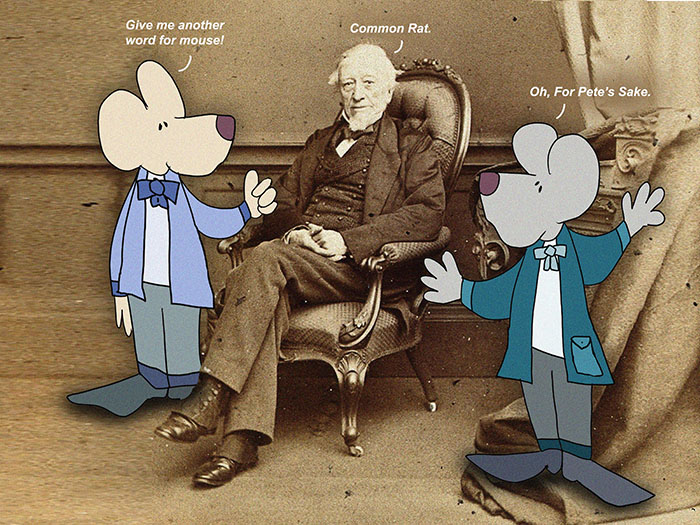In life, most of us try to figure out what we are good at. It could be as profound as our life purpose, or maybe in some cases, we seek the thing that we like to do. Sometimes there is a distinction between the two. Mother Theresa probably enjoyed needlepoint like crazy, but her life purpose ended up being helping the poor, sick, hungry, and the needy. And so you see.
Sometimes, though, we have to kiss a lot of frogs before we find the toad. Or something along those lines.
Peter Mark Roget was one of those people. History has deemed that he was a British lexicographer. By definition, it is a person who compiles dictionaries. But Peter came up with Roget’s Thesaurus very late in life. He also invented the slide rule and the pocket chessboard. I might add that today is his birthday, January 18, 1779.
As I mentioned, he is best known for publishing the Thesaurus of English Words and Phrases in 1852. It was a collection of related words.
He started out exactly like the rest of us. Coming through the birth canal, one way or the other. His mother was on Broad Street, Soho, London, so that’s where he dropped in on things.
His father, Jean, died when Peter was four years old. So his mother, Catherine, moved the family to Edinburgh. Eventually, Peter began to study medicine at the University of Edinburgh, graduating in 1798.
But it seems he wasn’t so good at the whole “doctor” thing. He couldn’t get a start in a medical career. So instead, in 1802, he took a tutor job, to the sons of John Leigh Philips. This Phillips fellow was starting something called a Grand Tour during the “Peace of Amiens.” So on this big trip was this Phillips guy and one of his friends named Lovell Edgeworth, the two sons, and Roget. Somehow, that “Peace” abruptly ended. And the whole lot of them were detained as prisoners in Geneva. Eventually, Roget was able to bring his pupils back to England in late 1803. But the other guys were held in captivity until Napoleon’s fall in April 6, 1814. Twelve long years.
So. First, his medical career got a lame start. And then he ended up in prison as a tutor.
It gets worse.
Peter Roget’s next job, after getting back in 1804, was as a private physician to William Petty, the First Marquess of Lansdowne. Peter’s friend got him the job, a politician by the name of Sir Samuel Romilly Well. That job didn’t last long either. The Marquess died in 1805.
Over the next ten years or so, he kicked around doing this and that. Giving lectures, working in a dispensary, helping at a hospital, those sorts of things.
Then, his friend’s wife died — that politician Sir Samuel Romilly — the guy who got Peter the job. They called Peter to go to Samuel’s house, to hang out with him, I suppose. But Romilly committed suicide by cutting his throat, dying in Roget’s presence, in 1818.
He had a series of other jobs over the years. All involved somehow in medicine. But, he gave up the medical practice in 1840.
It was after old Peter retired from professional life in 1840 that he started working on his little word list. Words with similar and alike meanings. It was said that Roget suffered from depression his whole life, but concocting his word lists made him happy. It was something he was good at. Finally.
The catalog of words was first printed in 1852, titled “Thesaurus of English Words and Phrases Classified and Arranged so as to Facilitate the Expression of Ideas and Assist in Literary Composition.” I kid you not. It must have been a big book just to accommodate the title. During Roget’s lifetime, the work had twenty-eight printings.
So. Peter Mark Roget died, at age 90, in 1869. Passed away. Lost his life. Expired. Went to glory. Kicked the bucket. Gave up the ghost. Bit the dust. Croaked. Cashed in his coins.
Handed in his dinner pail.
If it weren’t for him, I couldn’t have given him such a big sendoff.
===========
Without continual growth and progress, such words as improvement, achievement, and success have no meaning.
— Benjamin Franklin
===========
I have always believed, and I still believe, that whatever good or bad fortune may come our way we can always give it meaning and transform it into something of value.
— Hermann Hesse
===========
I’m not searching for the meaning of life, but I’m looking for a meaning within my life.
— David Lowery
===========
Interchangeable, undifferentiated, homogeneous, interchangeable, undifferentiated, homogeneous,
